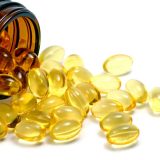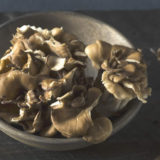Included in nearly every multi-vitamin, found in some of the healthiest produce and taken religiously by legions of consumers, Vitamin C is probably the most well-known vitamin. Although not conclusively proven, most people typically take Vitamin C to boost their immune system. However, the immune system is not the only body system that appears to benefit from Vitamin C supplementation. Based on a growing body of research, this power vitamin may be valuable for maintaining a healthy blood pressure.
About Vitamin C
Also known as ascorbic acid, Vitamin C is a water-soluble vitamin that is necessary for normal growth and development. Because it is soluble in water, leftover Vitamin C leaves the body through the urine. Since it is not stored by the body, people must get what is needed from a continuous supply of Vitamin C-rich food or supplements.
The human body has a wide range of uses for Vitamin C:
- It helps form a protein to make skin, tendons, ligaments and blood vessels.
- It helps heal wounds and form scar tissue.
- It helps block cellular damage from free radicals.
- It helps repair and maintain cartilage, bones and teeth.
While all fruits and vegetables contain some amount of ascorbic acid, the following foods are known to have a particularly high Vitamin C content:
- Citrus fruits (like lemon, orange and grapefruit)
- Parsley
- Broccoli
- Strawberries
- Kiwi
- Bell Pepper
- Pineapple
- Brussels Sprouts
- Cantaloupe
- Kale
Reflecting how much a person should get each day, the Recommended Dietary Allowance (RDA) of Vitamin C depends on age, gender, pregnancy and illness. While eating a balanced diet with a variety of Vitamin C content is the best way to get the RDA of Vitamin C, experts typically advise people to get 75 to 90 mg a day. However, this is far from the limit – as The National Academy of Sciences set a Tolerable Upper Intake Level (UL) for Vitamin C at 2,000 milligrams (2 grams) for adults 19 years or older.
The Vitamin C and Blood Pressure Connection
Elevated blood pressure is known to be a significant risk factor for the development of cardiovascular disease. Experts believe that nearly a third of American adults have high blood pressure, which increases their risk for heart disease and stroke. Usually treated by dietary changes, exercise, not smoking, losing weight and taking medications, evidence that Vitamin C has an inverse relationship with blood pressure is building.
Several researchers have found a strong link between high blood levels of Vitamin C and healthy blood pressure. The relationship appears to be twofold:
- As blood levels of Vitamin C rise, high blood pressure drops.
- Those with high blood pressure tend to have lower concentrations of Vitamin C in their bloodstream.
- In a recent review study, scientists analyzed data from 29 different trials to determine if Vitamin C supplements helped lower blood pressure. At an average dose of 500 mg per day, the researchers found:
- In those who had high blood pressure, systolic blood pressure dropped by nearly 5 points.
- In those who had high blood pressure, diastolic pressure dropped by about 1.7 points.
According to associate professor of general internal medicine at the Johns Hopkins School of Medicine, Edgar “Pete” R. Miller III, MD, PhD states, “Our research suggests a modest blood pressure lowering effect with vitamin C supplementation. But before we can recommend supplements as a treatment for high blood pressure, we really need more research to understand the implications of taking them.”
In-depth knowledge of how and why Vitamin C helps lower high blood pressure has not yet been established, but some experts believe that this vitamin is able to restore elasticity to the cells that line the coronary arteries. The loss of elasticity or vasodilation ability is called “endothelial dysfunction” and is associated with atherosclerosis, high cholesterol, smoking and hypertension.
Although it’s a relatively safe vitamin, high doses are not recommended. At doses of 5 grams (5,000 milligrams) or more of Vitamin C, diarrhea can result. In addition, large supplemental doses can also increase levels of uric acid in the urine – raising a person’s risk of forming uric acid kidney stones. Thankfully, these toxicity-related issues only occur when Vitamin C is taken in supplemental form and not as it naturally occurs in food.
There is not yet enough data indicating its ability to lower high blood pressure for the medical community to prescribe supplemental Vitamin C. However, most sources believe that it’s just a matter of time before Vitamin C is suggested (in conjunction with dietary changes, exercise, not smoking, losing weight and taking medications) to lower high blood pressure. Until large doses are supported by your personal physician, it appears to be perfectly safe to dramatically increase your consumption of Vitamin C-rich foods to knock high blood pressure down – a reduction that could reduce some people’s risk of heart disease and stroke.




